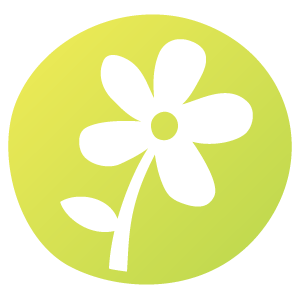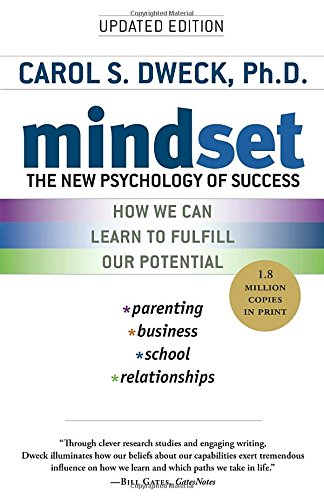How do positive education programmes help students?
Positive education is a somewhat new approach to schooling, which is becoming more popular as increasing numbers of studies begin to show the value of teaching subjects outside the typical cognitive based curriculum. The additional – non-cognitive – skills that positive education promotes are designed to not only support student's to achieve academically, but also to flourish in the widest possible sense, including in their relationships with others, their self-esteem and their own mental and physical wellbeing.
Studies have frequently shown that the outcomes of a positive education for students can include:
Significant achievement gains in standardised tests in math and English language
Showing higher motivation and engagement
Higher overall satisfaction with schooling
Higher goals and aspirations
Interestingly, non-cognitive skills have been shown to be at least as important for educational and labor market success as cognitive skills like numeracy or literacy
What exactly is positive education?
The International Positive Education Network (IPEN), in The State of Positive Education, a 2017 report for the World Government Summit, describes positive education as follows:
"Positive Education is an approach to education that blends academic learning with character & well-being. Preparing students with life skills such as: grit, optimism, resilience, growth mindset, engagement, and mindfulness amongst others."
IPEN's own website simplifies this definition to the simple equation; Academics + Character and Wellbeing.
The key point here is that positive education includes instruction beyond simply academic or cognitive skills, and supports student development and understanding of character traits, along with a range of wellbeing skills. As you can see from the definition above these are sometimes referred to as soft skills or life skills. Each of these skills are included in Passion Arena's non-cognitive skills (although we cover a slightly broader array of specific, yet interrelated specialty areas).
Whether it's called positive education, well-being, life skills or non-cognitive skills, the goal seems always to be the same – to prepare students to succeed in education and in life. Schools have traditionally done a good job in helping students with the former, but there appears to be a growing interest in finding ways to help them do a better job of the latter.
Does a positive education just include cognitive and non-cognitive subjects?
It's easy to think of each element of positive education as a 'subject' or skill-set all on its own. But consider this statement from IPEN's The State of Positive Education Report:
"If an overarching goal of positive education is to bring out the best in each student—and this does appear to be a common theme among diverse conceptualisations of positive education — multiple components must be addressed simultaneously, and ongoing evaluation of growth must be assessed. Toward this aim, integration with other areas of psychology is critical, including research in developmental psychology and talent development (Blair & Diamond, 2008; Bloom, 1985; Bronfenbrenner, 2005; Bronfrenbrenner & Ceci, 1994; Kaufman, 2013; Kaufman & Duckworth, 2015; Nakkula, & Toshalis, 2006; Subotnik, Olszewski-Kubukius, & Worrell, 2011). Also, the multiple components of positive education (engagement, relationships, purpose, etc.) must not be treated as independent of each other, but mutually reinforcing to influence the development of a “whole person”—a dynamic system of cognitive, emotional, motivational, and personality processes (Blair & Diamond , 2008; Kaufman, 2013; Kaufman & Duckworth, 2015; Molenaar & Campbell, 2009)."
Whether you call it non-cognitive skills education or positive education, the underlying truth seems to be that the areas of specialty that make up the "whole person" are so closely interrelated that they must be considered and taught as a dynamic system. That means not just introducing individual ideas, but showing the interrelationship of those ideas – cognitive and non-cognitive.
Positive education and Passion Arena
As already outlined, many of the non-cognitive skills included in Passion Arena's program would qualify within a positive education framework. We choose to promote non-cognitive skills, as this also allows us to stretch our skills outside of the character and wellbeing space of positive education and include other valuable skills for success such as leadership, deliberate or perfect practice, or building courage. Where we do completely align with the thinking of positive education, is that an academic – cognitive – education is still paramount to future success. But we also believe it should be supplemented with non-cognitive skills to provide the best possible 'development of a whole person'.
Watch a Passion Arena episode relating to positive education
Due to the close relationship between non-cognitive skills and positive education, we feature a number of episodes that cover positive education related content. To get an idea of how we introduce our non-cognitive skills, click the button below to watch a Passion Arena episode about persistence and grit.
Want to find out more about positive education?
Books on positive education:
If you'd like to dive further into understanding positive education, we recommend the following books which introduce some of the non-cognitive or 'life' skills covered in the definition above. Click on the titles for more information.
Videos on positive education:
Here are two videos that introduce what positive education is, as well as the benefits and simple approaches that positive education provides.
Academic papers on positive education:
The academic papers below are only a few relating to positive education. While we hope the studies below prove useful, if you have a specific area of positive education you want to address, we recommend searching Google Scholar.
The State of Positive Education
Authors: David Bott, Dr. Hector Escamilia, Dr. Scott Barry Kaufman, Dr. Margaret L. Kern, Christian Krekel, Dr. Raphaela Schlicht-Schmälzle, Sir Anthony Seldon, Dr. Martin Seligman and Mathew White. First Published: January 2017
An Applied Framework for Positive Education
Authors: Jacolyn M. Norrish, Paige Williams, Meredith O’Connor and Justin Robinson. First Published: 2013
A Review of School-Based Positive Psychology Interventions
Author: Lea Waters. First Published: March 2012
Positive Education: Positive Psychology and Classroom Interventions
Authors: Martin E. P. Seligman, Randal M. Ernst, Jane Gillham, Karen Reivich and Mark Linkins. First Published: June 2009






